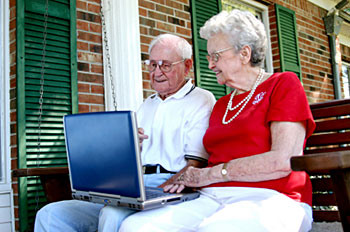More Health and Nutrition Bites
Related
How to Exercise with Disabled or Weak Legs
Spending long hours sitting in a wheelchair or in a bed can not only be uncomfortable, but can also lead to weight gain, weakened muscles, joint and muscle stiffness and weakened heart and lungs. Thus, moving as much as possible is very important for anyone with disabled or weak legs.
How to Eat Healthy Alone
Eating by yourself and eating healthy can be a challenge. There are a few considerations and first and foremost is that there's no one to share the shopping, cooking and cleaning up. With couples and families often one person will cook and the other clean up. Or sometimes people will switch off making different meals on chosen days.
Dietary Fat and the Risk of Alzheimer's Disease
It has become clearer and clearer that diets high in saturated fat and trans fats are associated with health problems. I have written about many different research studies that link diets high in these types of fats with heart disease and stroke.
Health & Nutrition Bites
Get the latest health and diet news - along with what you can do about it - sent to your Inbox once a week. Get Dr. Gourmet's Health and Nutrition Bites sent to you via email. Sign up now!
Diet and exercise good for older adults, too

The elderly are especially susceptible to what is known as "metabolic syndrome," an observed combination of risk factors that, taken together, represents an increased risk of type 2 diabetes and heart disease. These risk factors include high blood pressure, poor cholesterol scores, and diabetes, along with high levels of the markers of inflammation. Obesity, also a risk factor for heart disease, usually increases with age, as well, compounding the elderly person's risk of heart attack.
Lifestyle changes such as improved diet and regular exercise have been shown to improve these risk factors for young and middle-aged persons, but conventional wisdom has been that lifestyle changes for the elderly are unlikely to work because their diet and exercise habits are well-established. An international research team decided to challenge that belief by recruiting a group of obese (Body Mass Index of 30 or more), sedentary, elderly persons (at least 65 years of age) to participate in a controlled study of the effect of diet and exercise changes on the elderly (Am J Clin Nutr 2006;84(6):1317-23).
Of a total of 24 men and women, 9 were assigned to a control group and were instructed to continue with their current diet and (lack of) exercise. The other 15 received weekly group meetings with a dietitian, exercise training sessions three times per week, and a prescribed balanced diet designed to achieve a loss of 10% of their body weight by the end of the six month duration of the study. All subjects had the following measurements taken at the beginning and the end of the study: waist circumference, blood pressure, cholesterol levels, inflammation levels, metabolic syndrome criteria, and body fat measurements.
The control group's measurements did not appreciably change after six months, as one might expect. The intervention group, however, improved their scores in nearly every category: they lost between 3% and 14% of their body weight and over half of those who had started the study with metabolic syndrome were free of it.
What this means for you:
It's never too late to improve your diet and get some regular exercise. If you are over 65 and are worried about exercising safely, talk to your doctor about a referral to a physical therapist, who can help you learn effective, safe ways to exercise.
First posted: December 13, 2006
